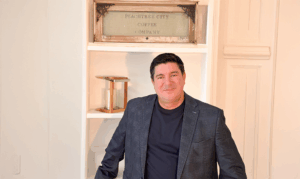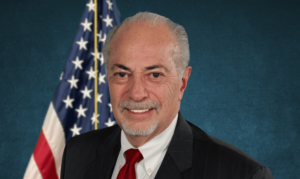He grabbed the paper with conviction and read the letter from Standard & Poor’s giving a glowing picture of the county government’s finances. There it was with proof and certainty, nothing else need be said.
The error Commissioner Lee Hearn made in his best attempt at dodging accountability for a looming crisis was he forgot the large audience was a group of seasoned, intelligent people not willing to eat the propaganda.
Standard & Poor’s was one of the primary entities responsible for our devastating economic crash, giving high ratings to large financial firms and their worthless collateralized debt obligations (CDOs) that causes millions in our population to go broke. How appropriate that Commissioner Hearn try to pull the wool over our eyes in such similar fashion.
The county’s budget outlook is dreadful. However, let me make it very clear that the county staff and the constitutional officers other than the Board of Commissioners are not to blame.
The decisions and sometimes lack of decisions of the Board of Commissioners, past and present, has put us on a course where the county government closes budget deficits by deferring multimillion dollar charges for maintenance and equipment purchases, borrowing from those line items, adding additional expenses without the revenue to pay for them and attempting to convince the public we have a much better position than what actually exists.
Just like the destruction the major financial institutions brought upon us through a fraudulent derivatives market, a majority of our Board of Commissioners is setting us up for a crash.
The county government, from the previous administration to present, is engaged in deficit budgeting along with the consistent deferral of obligatory expenses.
By obligatory, I mean things like building repair, vehicle and equipment purchases. In FY 2011, as was also the case in FY 2010, there were no vehicles or heavy equipment budgeted as part of our replacement cycle. The sheriff’s deputies require a vehicle, so to ignore the replacement cycle is not in our best interest.
With revenue consistently faltering, expenses growing and maintenance and capital projects deferred, we are plowing deeper into an unsustainable financial crisis. Events are rarely kind to those who keep kicking the can down the road.
The phrases “fiscally conservative” or “fiscally sound” should not be used in relation to the decisions our Board of Commissioners have made over the last several years.
With the financial staff’s clear warning that revenues would continue to decline in FY 2011, the previous Board of Commissioners did not take the necessary steps to prevent the county’s Fire Fund from plunging into red ink. Similarly, the three current members from that previous board made a decision at the last meeting that will introduce the erosion of funding in the EMS Fund.
Now keep in mind that in late 2010 (FY 2011), knowing the Fire Fund was going to crash, knowing our deficit gap would be larger in FY 2012, the previous board decided to award an unbudgeted $645,000 “performance” bonus to the employees. Does this make sense to anyone? This goes on and on.
Chairman Herb Frady did not care for my pointing out the serious flaws in the budgeting process. Neither Frady nor Commissioner Hearn nor Commissioner Robert Horgan contested my factual remarks as they were taken from county documents.
We had an opportunity to greatly improve our budgetary position through a new piece of state legislation dubbed “HB 240.” It was abundantly clear to many that we as taxpayers would be able to dodge a major financial hit and future widening deficits by using the new legislation that allowed us to use SPLOST funds already paid and dedicated to projects not worthy of building to make our future budget whole and produce some tax breaks for the citizens.
My effort to salvage the budget through HB 240 was doomed from the start as Frady, Hearn and Horgan railroaded my presentation, not allowing me to speak at the June 9 meeting.
At the June 29 meeting Frady claimed their prior suppression of my proposal was unavoidable, which is a huge lie because the county attorney clearly told them the decision to allow me to speak was dependent upon whatever they decided to do at the time.
At the recent June 23 meeting, the three-member majority had directed the county attorney to try to derail my proposal by citing possible technicalities.
Our county attorney’s desperate attempts at trying to derail the HB 240 proposal were so farfetched that ordinary citizens sitting in the audience who had read the bill were shaking their heads in disbelief.
I understand how the game is played and that the staff has to follow the lead of the voting majority on the Board of Commissioners, but the effort to placate Frady, Hearn and Horgan was so over the top, literally cherry-picking language from the bill and giving bizarre explanations, that it only strengthened my case.
At one point the county attorney began jabbering on about when the referendum elections could be held, making some absurd claims, and he ultimately admitted he had very little knowledge on the subject.
The county attorney also pointed out the county had no general obligation debt to pay down under part of the requirements of HB 240, but even he knew the blatantly obvious answer was we would simply take the deferred maintenance and capital items and place them in a general obligation bond instrument as part of the required referendum.
As I pointed out during the discussion, the extreme worst case scenario with using HB 240, which neither the county attorney nor the three-member majority could challenge, was the county would give the Fayette County taxpayers the largest tax break in the history of the county in FY 2012 and the Board of Commissioners could raise the millage rate in FY 2013 to recover a portion of that reimbursement to save future budgets, costing the taxpayers not a single penny more in taxes.
Commissioner McCarty suggested that we seek the opinion of the state attorney general on what we could do with the HB 240 proposal and the county attorney, for obvious reasons, pooh-poohed that idea.
The important thing to remember about the June 23 vote to forego HB 240 is we will never get another opportunity like this to move a significant subset of funds into our general budget scheme with such little impact. The ability to take the remaining SPLOST funds and reinforce areas in the budget that were de-funded or significantly underfunded without raising taxes a single penny would have formerly been deemed an impossible dream.
To anyone looking at the numbers, using HB 240 was the closest thing to a “no-brainer” you will ever come across. Why would the three-member majority try so desperately to kill a measure that would cure so many of their past budgetary failings?
They forsook the financial stability of the county so that they could continue funding the construction of the much despised West Fayetteville Bypass. A developer welfare road project takes precedence over the financial well-being our county.
Many of our citizens are inferring corruption, and I will agree that there is no logical warranted reason to build that bypass. The secrecy and the behind the scenes jockeying to construct that bypass, to the point where the three-member majority will not even allow taxpayers to vote on repurposing the SPLOST funds, causes an enormous amount of suspicion .
There will be nothing but difficult choices left for future budgets in the face of the recent rejection of HB 240. In the end, we the taxpayers are the losers.
Steve Brown
County Commissioner, Post 4
Peachtree City, Ga.











Leave a Comment
You must be logged in to post a comment.